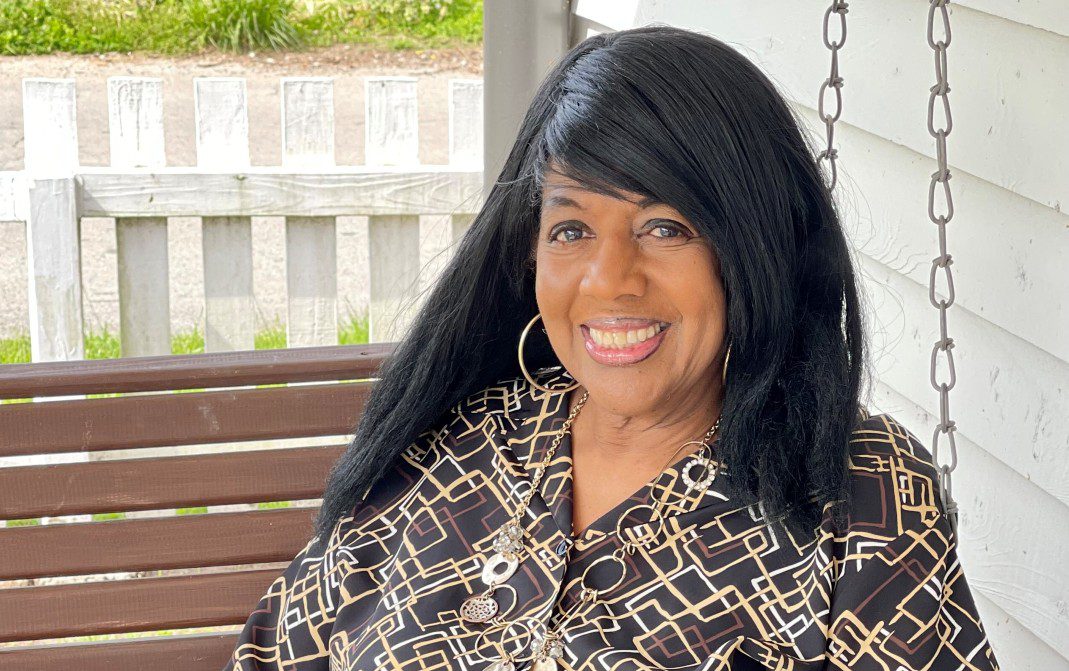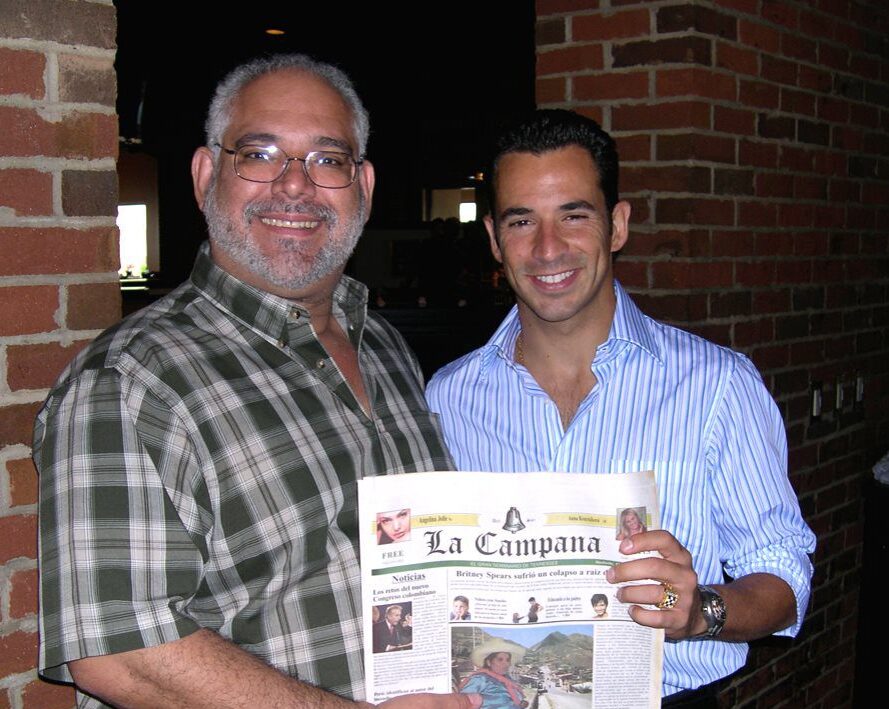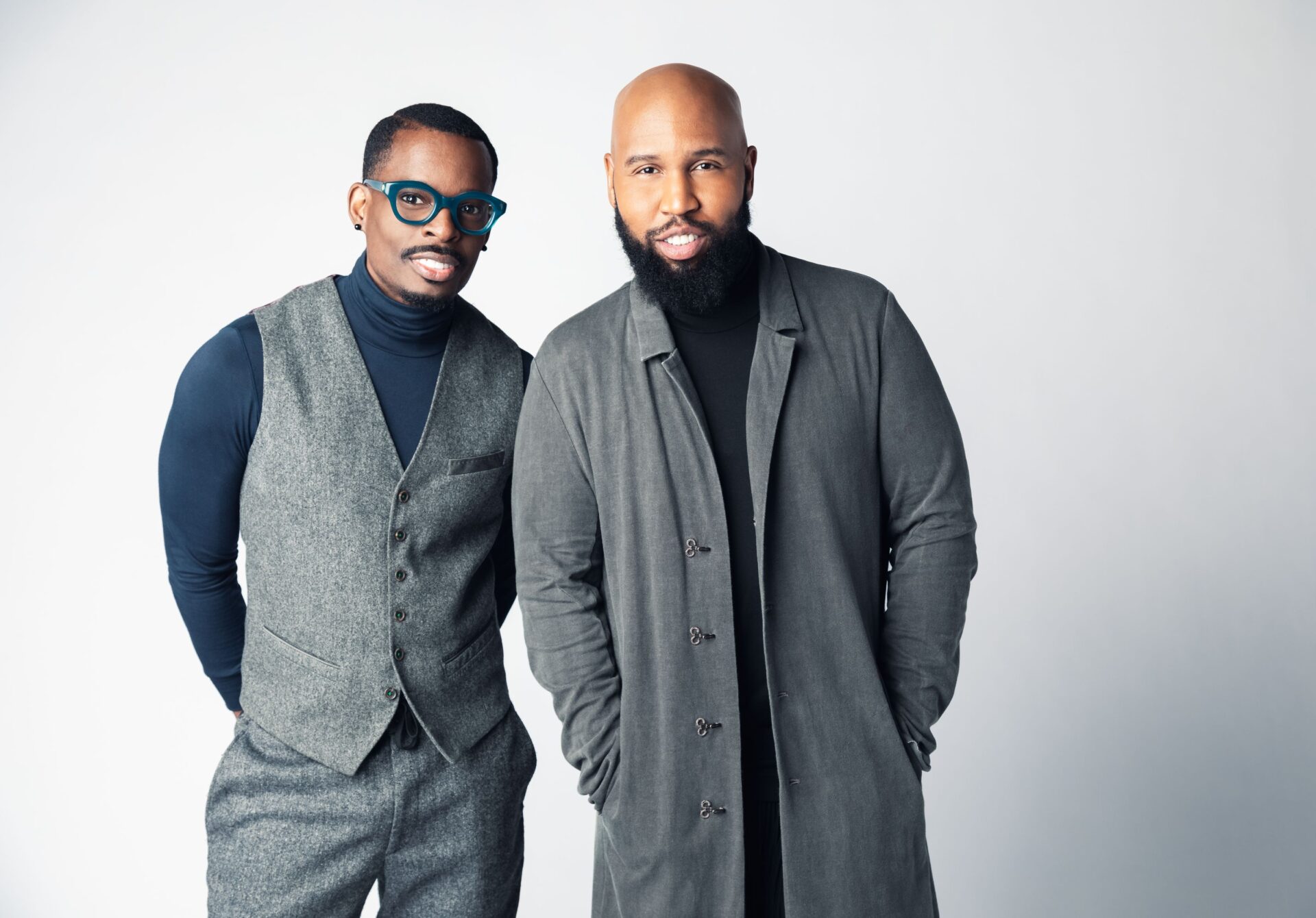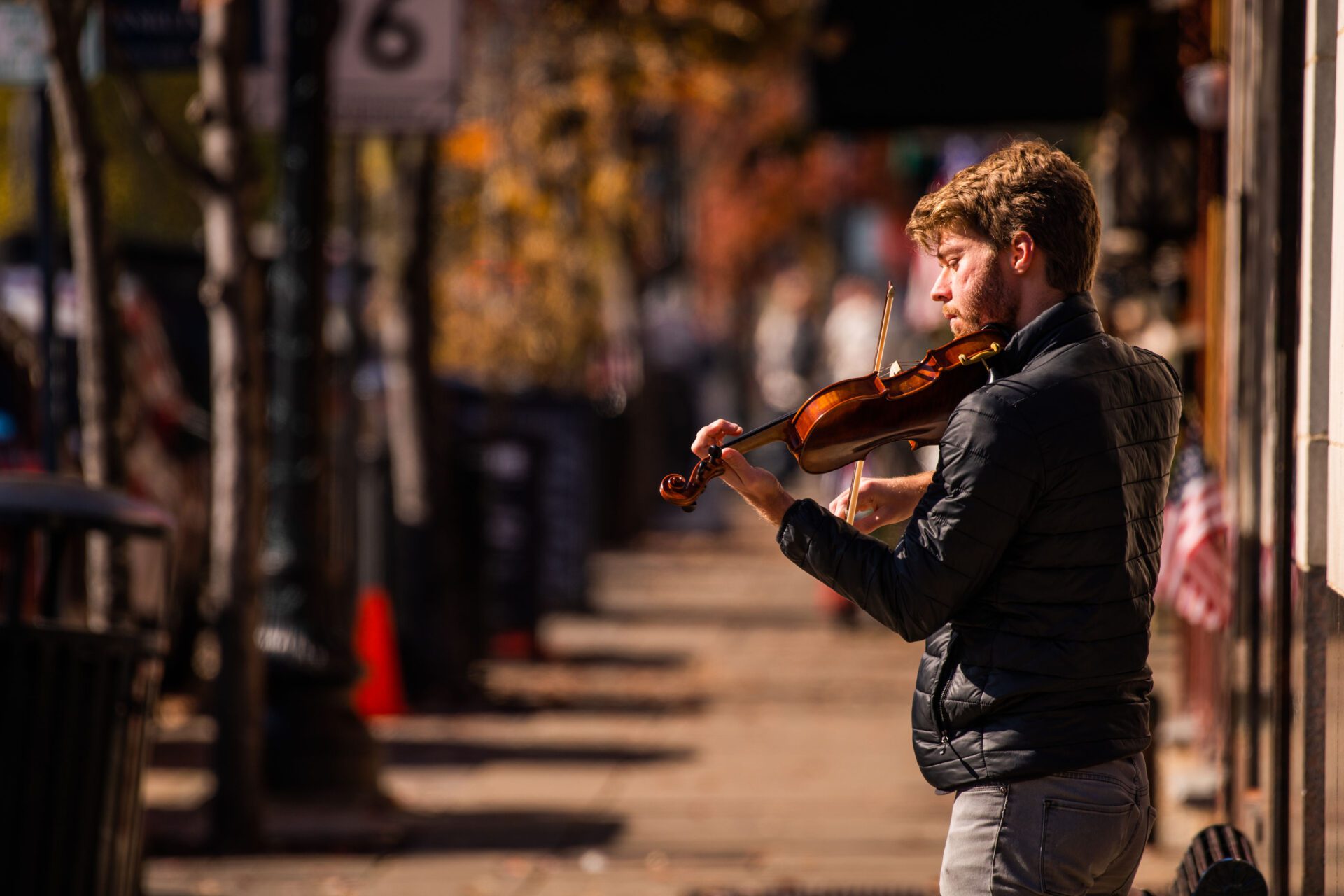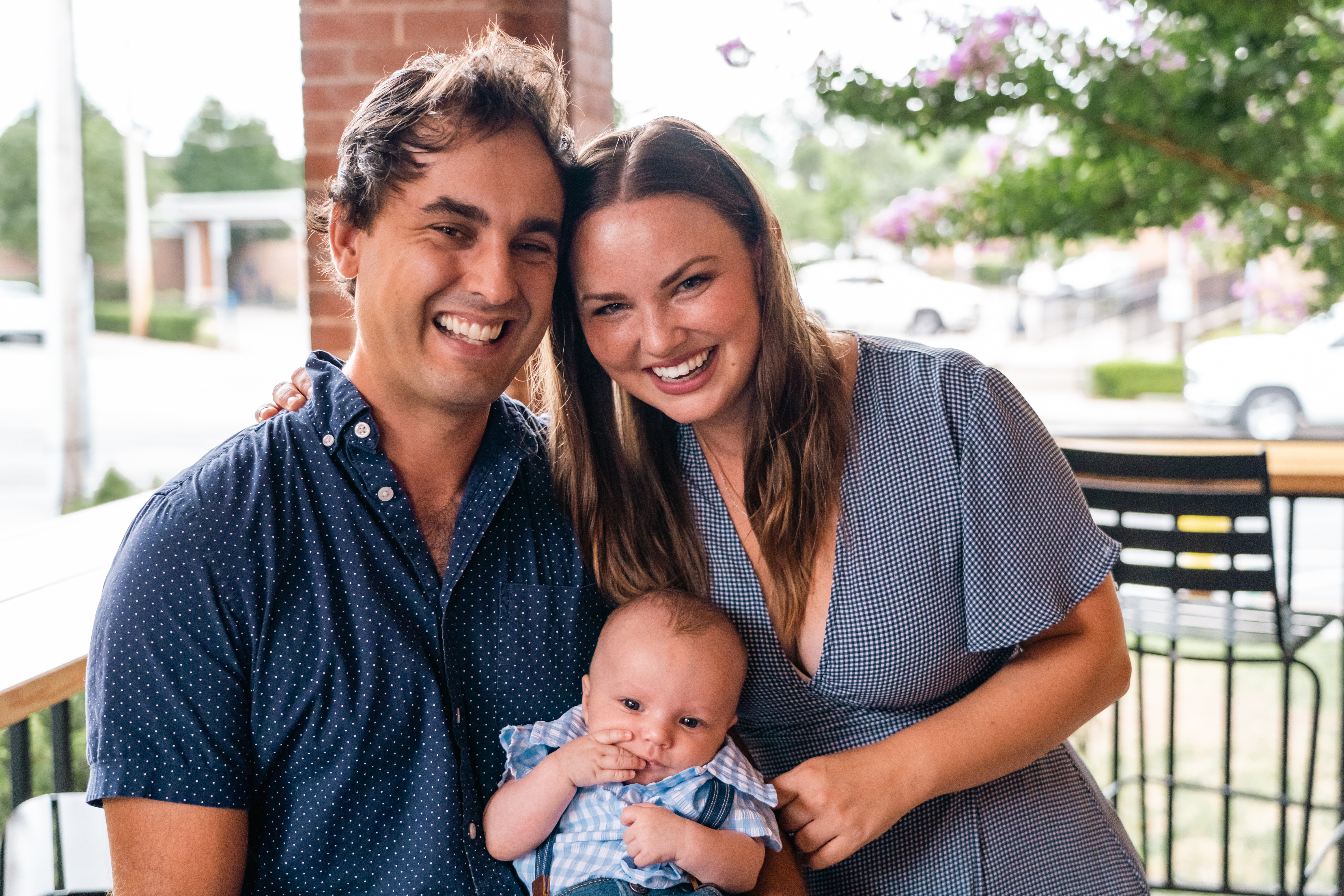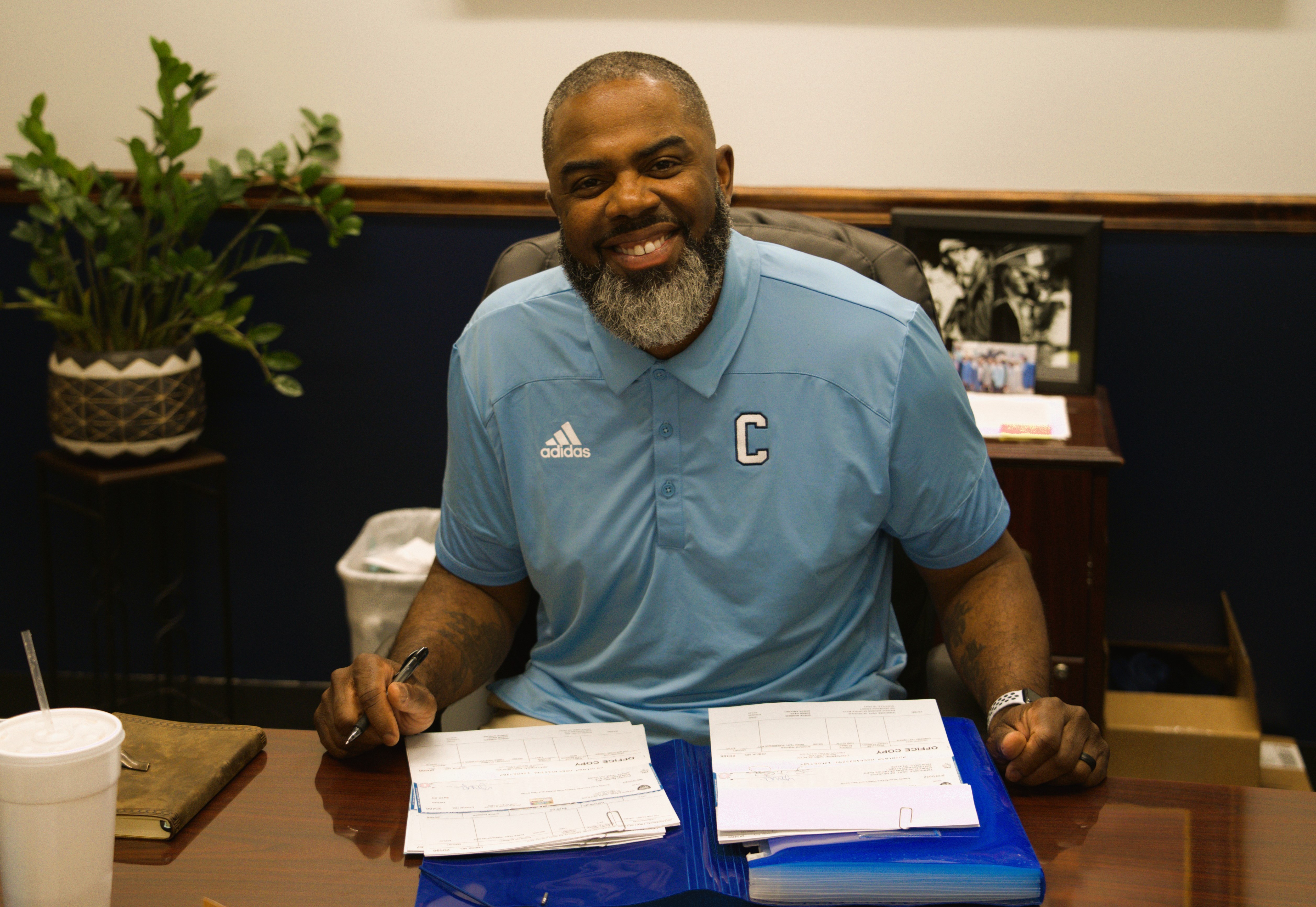"I was born raised here – Franklin native – and lived here all my life. I haven’t lived anywhere else. Don’t have a desire to live anywhere else. Except, I remember when my kids were in high school, I thought one time, “Oh, it would be fun to move to Atlanta.” That was a thought for maybe a week, but then I don’t even know what possessed me to think about it. What keeps me here still is the small-town flavor, the quality of life. It’s not small-town anymore, but the roots are here. Part of my family is here, part had to move to Spring Hill. But I have worked here all my life, and I have raised my family here in this community. I have served the community all my life, since my kids were in grade school. Growing up here, I enjoyed my life. I had six siblings – there were seven of us – and the older ones lived in the country. We called it the country, but now it’s Boyd Mill Pike over by Westhaven. There’s nothing country about it anymore. But at the time, they lived on a farm called the Short Farm. I was born when that family moved to town, but my mother told me they used to catch a taxi to come to church. They went to Cummins Street Church, then the Fowlkes St. Church. I just lost the last two siblings in the last four years. They would tell me the stories of living out there and how they had access to all kinds of fruit trees, and vegetables, apple trees, pear trees, big ‘ol blackberries, walnuts, and everything. They just really enjoyed living out there on the farm. I didn’t get to experience any of that. When they would tell me those stories, I’d be so excited. Then I found out in 2017 or 2018 as I was sitting on this very swing, I was talking to Kristi Farrow, the Director of African American studies for the Battle of Franklin Trust, and she was about to visit the Short family property on Boyd Mill. She told me the Shorts were the enslaved family that came from the Carter House. I remembered them from when I little girl; they were pretty old, but I remembered them. It was exciting to learn those people I remembered were descendants of the slaves of Carter House. Alma Short is a direct descendant of Fountain Branch Carter - that’s his granddaughter. My parents were sharecroppers, and they lived on their property. They lived in a three-room house – a front room, a bedroom, and a kitchen. They had four of my siblings, a set of twins and two sisters. Four kids and two adults living in that house off Boyd Mill. And then I remembered my mother named me after Alma Short.
I don’t know why, because I was born in town, but I didn’t realize until I was talking to Kristi that I was named after a Carter House descendant. Isn’t that something? Isn’t that just wild? I’ve been involved in this community for years, and I had no idea. We are so connected, and when people talk about how one race is better than the other, and the privileges of certain races – well, I believe God made us all. And we are connected in every way. In the beginning, he created man from the dust of the earth, and he didn’t say, “That’s brown dirt, and that’s white dirt.” He created man. We all came from the beginning. So how can we be so segregated and feel like we are so much more than others, whatever that race is? And to hear that I was named after that family, you just don’t even know the position you’re going to be in life, you know? Had I not been involved with AAHS, if Kristi had not been over here sharing this, I never would have known that Alma Short was from that family. I knew I was named after her, but I didn’t know that she was a part of that family. Isn’t that crazy?
I remember we lived on Cummins Street at one point, which is behind the Auto Zone in Franklin, and the Carter House was on the next street. My brother and his friends would find those little shells and bullets walking around and would take them up to the Carter House. We never thought about it; we just knew it was the Carter House. It never meant anything to us. We never visited; we didn’t think about the Civil War. That wasn’t on our radar. We lived, we survived, we went to school and church, we had neighbors we had good times with, but I never went to the Carter House until probably 20 years ago. It didn’t mean anything, and now, as people tell more of the fuller story, you can connect all that. You have the Carnton Plantation where many, many enslaved were, and they’re the reason Carnton is what it is today. And you have the Carter House and the stories of before the Civil War and during. And then you have Reconstruction and McLemore House after the Civil War when the enslaved became free. Harvey McLemore was a slave for most of his life, but then he was able to have the determination, the grit, and the resolve to say, “I’m going to do something for my family. I’m going to make a home in the community and build a home for my family.” Many families didn’t have that. Many lost their lives after slavery. They starved, they had nowhere to go, and they were not able to survive. He is one of the survivors, and his story is so profound. To sit on this porch, where Harvey – a formerly enslaved person – lived and raised a family is profound. He sharecropped to save money to purchase this property, and he purchased it from his former owner, W.S. McLemore, who sold him four lots. Think about this: not only did he buy one, but he bought four. That’s profound there. He developed this Hard Bargain neighborhood, one of the oldest African American neighborhoods in Williamson County, and we want to preserve it because gentrification has really taken over. A lot of newer homes are being built in the neighborhood, and once they’re gone – they’re gone. You can’t bring them back. You can build something else, but it’s not the house with the same meaning. This is Harvey’s house from 1880.
Ever since I’ve been involved in the organization in 2000, there used a big pile of bricks sitting over there that came from the house originally. And then all of a sudden, they disappeared. I guess the story got out, and more people got to hearing about it and just started taking them. Those bricks came from Harvey’s house – the chimney, the fireplace is all 1880. As an African American, so many of our things were destroyed and torn down because they had no significance to the general community, like Natchez High School when it closed in ’67 and integration laws went into effect. When those schools closed, things just got taken out and windows broken, and there was no place to say, “This came from a school before integration. This is very important, and we need to preserve this for present and future generations.” Nobody ever thought about that. It was never on anybody’s radar until 1992, when the AAHS was formed, and things started to change. The Heritage Foundation was nationally well-known, for its efforts to preserve and save and had a lot of properties on the national registry. The African American community had just one. So, a group of community leaders got together to help form the organization and decide to start help saving some things and preserve different places in the community. There were so many things that have been destroyed. There’s a park called Rucker Park - I don’t know what is out there anymore - but there used to be a monument there. It was a park where young boys and men would play ball, and that’s some good history. There were businesses on Natchez Street, grocery stores, restaurants, even a theatre. They built the housing authority homes across from the First Baptist church on Natchez, but before then, there were older homes. Being able to continue to live in the location I was born and raised is great. I know we have a lot of superstars here now and a lot of wealth, but do you know how many people we had here in the 60’s when I was growing up? About 7,000. Now there’s almost 80k just in the city of Franklin. Is that not crazy?
My grandmother lived in one of the housing projects at the very end, and they still exist. Every time I pass by there, I think about her. I would go to visit her, and she would fix cabbage, but oh, the smell. But she loved it. We would go “to town” on Saturdays and walk to downtown Franklin to shop. She was old then, and she wore these thick heels that older women wore a long time ago. Those are some of my fondest memories growing up. I loved that. They were things so simplistic to the average person, but to me, they were the fun things. We never went on huge vacations; we went to Nashville to Hadley Park, Beech Bend Park in Kentucky, and different places like that, but we didn’t go very far. I used to go fishing with my mother and her friends, and we had the best time. Think about these women – my mother was a hard worker all the time – but on Saturday, she’d go fishing off 96 to place called Cox Lake. I think it’s gone now. She and her friends were so funny; my mom was a wonderful Christian lady, and my dad was a hardworking man working in tobacco, but my mother and her friends loved to watch wrestling on tv on Saturday mornings. They’d be on the phone with each other screaming, “Get him!” It was so funny, and we kids would just laugh at them. But they would get into it. They were serious about it and loved Tojo Yamamoto. Just simple things like that. I just had fun with my friends and family. We would have gatherings all the time. There were seven of us siblings. I’m the only one left; I’m the matriarch now. It’s a sad time in my life. I have my children and their families, but above me, everybody is gone. And I’m not that old. It just feels weird. But I am glad that they were able to share things with me I didn’t know.
I have a lot of good memories in this community of being raised by good parents, having good friends, and lots of wonderful people in lots of organizations working together. I love being involved in the community and just seeing how things are now and how we are trying to unite, unify, and come together – especially as a nation. I tell people I’m like Jeremiah. I weep for the people because sometimes people don’t understand that unless you talk about things - unless you are in their presence and can build relationships with people who don’t look like you – you’ll never heal. If you stay on your side, and I stay on my side, if you live in your part of town and I live in my part of town, then we never connect. The people who have the biggest impact in my life are the ones who can mingle and communicate with people who are different from them. It’s easy to only hang out with your friends, and there’s nothing wrong with that, but when you step out of your comfort zone and meet somebody different, that’s the biggest thing. I’m not even talking about just color; maybe there’s somebody who is needy, and you may be able to provide them moral support. We’re not talking about money. Just let people know that you care about them. It starts with me, the girl in the mirror. If I can get up each morning and make a difference for somebody, to know that I shared a good word – just a good little nugget – or say something to recharge somebody’s battery that may be down, then that’s my goal. To just be a light to people every day.
When you see me, I hope you can see God. I have to say that. I’m always going to talk about God because I believe in him, and he is my life. He is who sustains my life, so how can I have a conversation with anybody without talking about where my hope, my faith, and my belief come from? It’s the center of everything. It’s the nucleus of my heart and my being. Some people don’t get or understand that, and some people are surface people. They don’t realize that their issues could be resolved by thinking about someone outside of themselves. It’s never about trying to please the next person. Just be who you are and know that you are loved. I think so many people lose out on so many things because they’re trying to be like the next person. God created me, and I’m just as important as the next person. I don’t get my importance from them. I don’t have to wear somebody’s designer jeans to feel good about who I am. If I don’t care about me, how I am I going to love you? I have to love me so I can love you, too. That’s the basis of how I feel about life. When all these things are the center - God being the driving force behind it – it all falls into place. Being in this community, being born and raised here, being blessed to have a home here, and have family still here and wonderful friends in the community who care, who support the AAHS, like the Heritage Foundation, and Hard Bargain Association and all the preservation organizations that support our organization, it’s everything because we’re doing this together. We are in this together because we are trying to tell the stories of African American history and all history."
